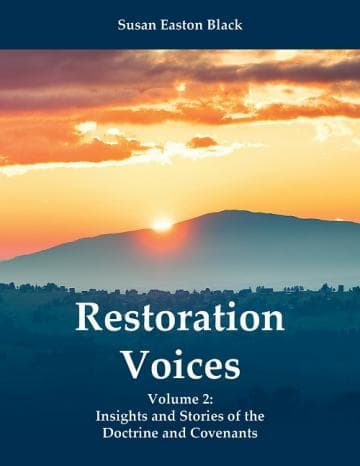Book
140 Chapters

In the ministry of Jesus, partaking of food played an important role in his farewells. His Galilean ministry closed with the feeding of five thousand. His ministry to the Gentile federation of Decapolis ended with his feeding of four thousand. His Judean ministry ended with the Passover Feast. In the closing of his Judean ministry, there was a new beginning. The last Passover Feast was two events rather than one. It was a formal celebration of the Passover supper and the first observance of the Lord’s Supper.
After Judas left the Upper Room, and while those who remained were still eating, Jesus said, “With desire I have desired to eat this Passover with you before I suffer” (Luke 22:15). He then took the round, unleavened bread and “blessed it, and brake it, and gave it to the disciples, and said, Take, eat; this is my body” or, as Luke says, “This do in remembrance of me (Luke 22:19). Raising a cup, he “gave thanks, and gave it to them, saying, Drink ye all of it; For this is my blood of the new testament, which is shed for many for the remission of sins” (Matthew 26:27–28). When Jesus said “This is my blood of the new testament,” he was referring to a new covenant, new emblems, and a new sacrifice (Matthew 26:28).
Christians all over the world participate in some type of sacrament service similar to the Lord’s Supper in the Upper Room. An important part of the weekly worship services of The Church of Jesus Christ of Latter-day Saints is the Holy Sacrament of the Lord’s Supper, referred to as the sacrament—an ordinance in which Church members eat bread and drink water in remembrance of the body and blood of Jesus Christ. Through the ordinance of the sacrament, Church members renew the covenants they made with God when they were baptized.
The Prophet Joseph Smith participated in worship services and the ordinance of sacrament. In August 1830 he penned, “As neither [Newel Knight’s] wife nor mine [Emma Smith] had been as yet confirmed, it was proposed that we should confirm them, and partake together of the Sacrament.” Wanting to prepare to partake of the sacrament, Joseph went to “procure some wine for the occasion.”[1] (Since 1906 water has been exclusively used in place of wine as an emblem of the sacrament.) Joseph had not gone far when a heavenly messenger appeared and made known to him the revelation contained in Doctrine and Covenants 7. Joseph wrote,
We prepared some wine. In obedience to [this revelation] we prepared some wine of our own making, and held our meeting, consisting only of five viz., Newel Knight and his wife, and myself and wife, and John Whitmer. We partook of the Sacrament, after which we confirmed the two sisters into the Church, and spent the evening in a glorious manner. The Spirit of the Lord was poured out upon us. We praised the God of Israel and rejoiced exceedingly.[2]
By partaking of the sacrament, Church members witness to God that they will remember Jesus Christ and keep His commandments. In return, the Lord promises Church members a remission of sins and to “always have his Spirit to be with them” (D&C 20:77).
[1] Revelations, circa, August 1830 [D&C 27]. Joseph Smith Papers.
[2] History, circa June 1839–circa 1841 [Draft 2]. Joseph Smith Papers.
Book
140 Chapters
Items in the BMC Archive are made publicly available for non-commercial, private use. Inclusion within the BMC Archive does not imply endorsement. Items do not represent the official views of The Church of Jesus Christ of Latter-day Saints or of Book of Mormon Central.